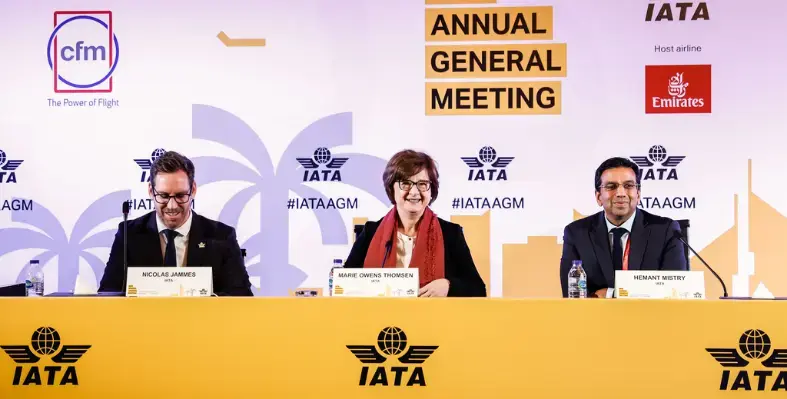The International Air Transport Association (IATA) is creating a SAF registry to enhance the adoption of sustainable aviation fuels (SAF) by accurately accounting for and reporting emissions reductions.
Seventeen airlines, one airline group, six national authorities, three original equipment manufacturers (OEMs), and one fuel producer are collaborating on the development of the registry, which is expected to launch in the first quarter of 2025. SAF is projected to contribute up to 65% of the carbon mitigation needed to achieve net zero carbon emissions in air transport by 2050.
Global accessibility
The registry will enable airlines to purchase SAF regardless of its production location, with certified environmental attributes tracked and assigned to the purchasing airline. This ensures accurate recording and transfer of SAF's environmental benefits, helping airlines and customers report emissions reductions in line with reporting obligations and international standards.
Versatile application and neutrality
The registry will be neutral concerning regulations, types of SAF, and jurisdictional specifics, capable of handling diverse user requirements. IATA is working with certification organisations and fuel producers to standardise data for efficient processing.
Ensuring regulatory compliance
The registry will assist airlines in meeting regulations such as the carbon offsetting reduction scheme for international aviation (CORSIA) and the EU emissions trading scheme. It ensures compliance with SAF mandates and provides transparency to authorities regarding emissions reductions.
Independent governance will ensure the system's impartiality and robustness. Participation in the registry will be on a cost-recovery basis, avoiding unnecessary cost barriers to SAF adoption.
The registry is being developed with input from airlines, government authorities, international organisations, OEMs, fuel producers and suppliers, airports, and corporate travel management companies. A key feature is the involvement of governments to ensure compliance with civil aviation authority requirements. Relevant authorities will validate and approve claims, update national emission inventories, and align with international standards, such as those set by the International Civil Aviation Organisation (ICAO).
“SAF is key to aviation’s decarbonisation. Airlines want more SAF and stand ready to use every drop of it. The SAF Registry will help meet the critical needs of all stakeholders as part of the global effort to ramp-up SAF production. Governments need a trusted system to track the quality and quantities of SAF used. SAF producers need to accurately account for what has been delivered and effectively decarbonised. Corporate customers must be able to transparently account for their Scope 3 emissions. And airlines must have certainty that they can claim the environmental benefits of the SAF they purchased. The Registry will meet all these needs. In doing so, the Registry will help create a global SAF market by ensuring that airlines have access to SAF wherever it is produced, and that SAF producers have access to airlines regardless of their location,” said Willie Walsh, IATA’s director general.









